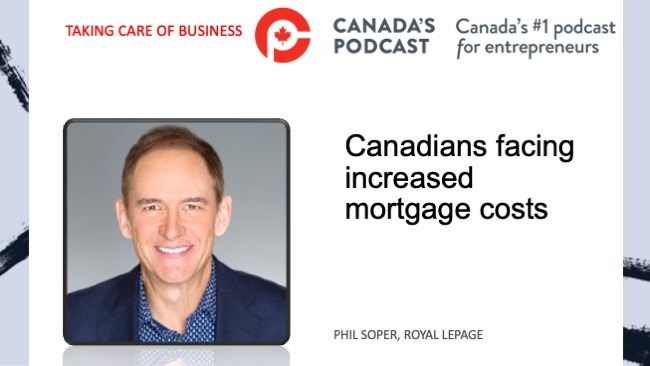A new report, by the Financial Resilience Institute, indicates that only 24% of Canadians are financially resilient. 76% have financial vulnerability and financial stress levels remain high across the country.

Eloise Duncan
“The latest Index from the Financial Resilience Institute highlights the financial vulnerability and stress faced by many Canadians,” said Eloise Duncan, CEO and Founder of the Financial Resilience Institute. “It is crucial to recognize the financial challenges encountered by significant portions of our population and to bring to the forefront the need for Canada to chart a course toward financial resilience.”
The Financial Resilience Institute measures household financial resilience, defined as a household’s ability to get through financial hardship, stressors and shocks as a result of unplanned life events, through its peer-reviewed Financial Resilience Index. The Index measures households’ financial resilience across nine behavioural, sentiment and resilience indicators at the national, provincial, segment and individual household level three times a year, with a pre-pandemic Index baseline of February 2020.
The eighth Seymour Financial Resilience Index found:
- Widespread financial vulnerability: The Index reveals that a significant 76% of the Canadian population, equivalent to 19.5 million adults aged 18 to 70 years old, are classified as ‘Not Financially Resilient.’ This vulnerability extends across all household income demographics. Remarkably, 22% of Canadians with a household income exceeding $150,000 are ‘Extremely Vulnerable’ or ‘Financially Vulnerable’ based on the June 2023 Index.
- Decrease in ‘Financial Resilient’ households: Over the past two years, there has been a noticeable decline in ‘Financially Resilient’ households, falling from 31% of the population in June 2021 to just 24% (less than 1 in 4) as of June 2023. Additionally, 18% of the population is now ‘Extremely Vulnerable’ to all financial stressors and shocks, which is a slight decrease from 21% observed a year ago.
- Continued high levels of financial stress: 52% of households are experiencing high levels of financial stress concerning their current and future financial obligations, up from 43% in June 2022. 60% of Canadians report that the high cost of living is negatively impacting their quality of life and 49% report that money worries make them physically unwell.
- Financial Hardship: 42% of Canadians are currently facing significant financial hardship. 23% of families are unable to meet their essential expenses, and 16% of households have been unable to get or afford the food they need, with this the case for 44% of ‘Extremely Vulnerable’ households. Housing affordability is a problem for 55% of Canadians as of June 2023. This issue is particularly acute for 82% of ‘Extremely Vulnerable’ and 69% of ‘Financially Vulnerable’ Canadians.
- Changing Financial Behaviors: As of June 2023, 69% of households report having significantly reduced their non-essential expenses, a notable increase from 56% a year earlier. However, due to the high cost of living, 62.5% of Canadians now report spending either more or the same as their household income, marking a substantial rise from 53% in June 2021.
- Savings and Debt: Despite these shifts in behavior, the Index highlights that 84% of households report the cost of living has outpaced any growth in their household income over the past 12 months as of February 2023. With Canada having the highest household debt levels of any G7 country as of May 2023, one third of Canadians have increased their borrowing to pay for essential expenses and 42% have had to draw down on savings to meet their debt obligations. Notably, only 50% of Canadians currently maintain a liquid savings buffer of three months or more as of June 2023, a notable decrease from a high of 64% in 2017. Nearly a quarter of the population (24%) has a buffer of less than three weeks. It’s crucial to point out that 37% of Canadians have either a negative or zero household savings rate as of June 2023.
- Increased financial vulnerability for variable-rate mortgage holders: While 67% of Canadians overall report that rising interest rates are a problem for them personally, this is the case for 88% of variable interest rate mortgage holders as of June 2023. Notably, the Index highlights that mortgage holders scored as ‘Financially Resilient,’ fell from 33% in June 2021 to 22% in February 2023 to only 18% in June 2023.

Mario Toneguzzi
Mario Toneguzzi is Managing Editor of Canada’s Podcast. He has more than 40 years of experience as a daily newspaper writer, columnist, and editor. He was named in 2021 as one of the Top 10 Business Journalists in the World by PR News – the only Canadian to make the list)
About Us
Canada’s Podcast is the number one podcast in Canada for entrepreneurs and business owners. Established in 2016, the podcast network has interviewed over 600 Canadian entrepreneurs from coast-to-coast.
With hosts in each province, entrepreneurs have a local and national format to tell their stories, talk about their journey and provide inspiration for anyone starting their entrepreneurial journey and well- established founders.
The commitment to a grass roots approach has built a loyal audience on all our social channels and YouTube – 500,000+ lifetime YouTube views, 200,000 + audio downloads, 35,000 + average monthly social impressions, 10,000 + engaged social followers and 35,000 newsletter subscribers. Canada’s Podcast is proud to provide a local, national and international presence for Canadian entrepreneurs to build their brand and tell their story.





